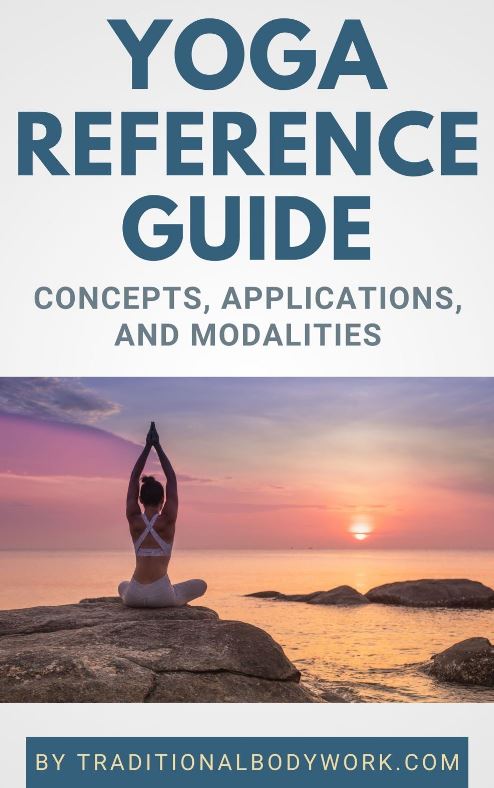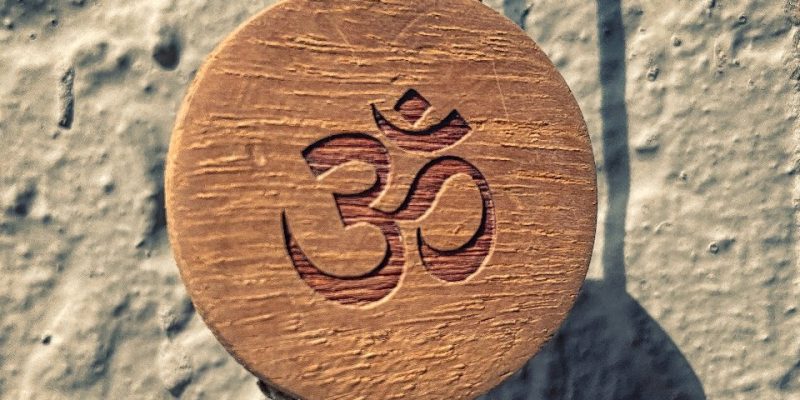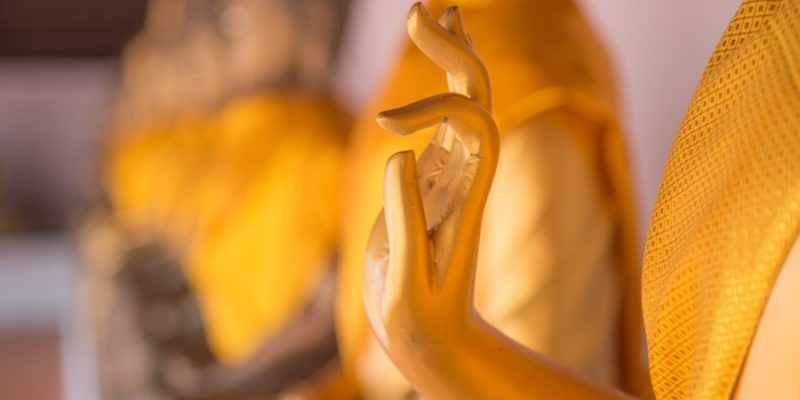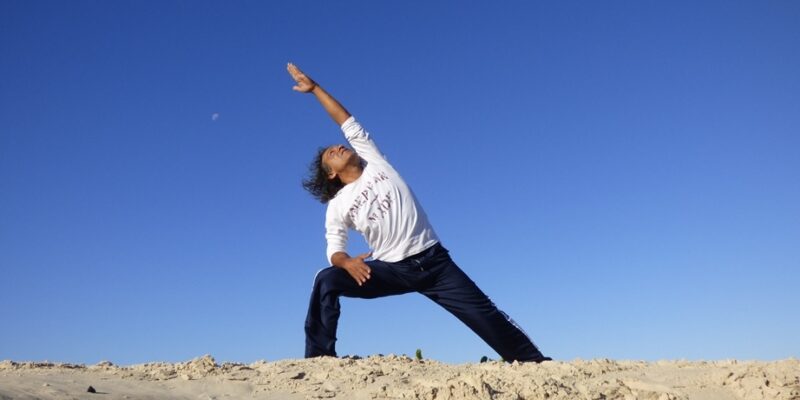
Integral Yoga, also known as Supramental Yoga, is a Yoga system conceptualized by Sri Aurobindo and The Mother (Mirra Alfassa), the founders of Auroville — an experimental universal city in South-India (Tamil Nadu) dedicated to the ideal of human unity.

Described as Yoga of self-perfection, the ultimate goal of Integral Yoga is becoming aware of the Divine, integrating the physical, mental and spiritual aspects of ourselves, and so manifesting the Divine on earth. “Divine Life in a Divine Body” is one of the motto’s of Sri Aurobindo and The Mother.
Unlike other types of Yoga, Integral Yoga doesn’t make use of Asanas (Yoga poses), Pranayama (breathing techniques), or other physical movement techniques.
Integral Yoga is rather a psychological and spiritual practice, focused on internal reflection, self-analysis and correction, as well as faith, aspiration and surrender.
The main practices of Integral Yoga are:
- The Yoga of Divine work (Yoga through selfless work – Karma Yoga);
- The Yoga of Integral Knowledge (Yoga through study, observation and knowledge – Jnana Yoga);
- The Yoga of Divine Love (Yoga of Devotion – Bhakti Yoga);
- The Yoga of Self-Perfection (also referred to as a Synthetic Yoga or the triple way).
Integral Yoga’s philosophical worldview is quite extensive, describing concepts of Involution and Evolution, categorizing and detailing three types of beings (Outer Being, Inner Being and Psychic Being), and also the levels of beings (Inconscient, Subconscient, Gross Body, Mind or Mental being and Supermind).

Sri Aurobindo also describes the three basic problems of mankind, which are: 1.Partial Self-awareness; 2.Partial awareness of other beings; and 3. Division between force and consciousness in evolution. Moreover, in his view, Ignorance — a self-limiting knowledge — is the main cause of all falsehood, error and evil. In order to overcome these obstacles, Aurobindo describes the process of Triple transformation, in which the lower nature is transformed into the divine nature.
According to Sri Aurobindo, with the practice of Yoga the evolution of being can happen in one life-time, while without it evolution would take many centuries or many births. Through Integral Yoga, he conceptualized a program for spiritual practice known as Sapta Chatushtaya (Seven Quadrates) to aid this evolution.
Sapta Chatushtaya – Integral Yoga’s Seven Quadrates:
- Shanti Chathusthaya (Peace Quartet);
- Shakti Chatusthaya (Power Quartet);
- Vijnana Chatusthaya (Knowledge Quartet);
- Sharira Chatusthaya (Physical body Quartet);
- Karma Chatusthaya (Divine Work Quartet);
- Brahma Chatusthaya (Divine Quartet);
- Siddhi Chatusthaya (Realization Quartet).
Sri Aurobindo’s work is substantial and complex, combining ancient Indian philosophical knowledge and spirituality with modern psychology, and for this it has also been described by some as Integral Vedanta and Integral Psychology.
















